ConnectFutures CIC
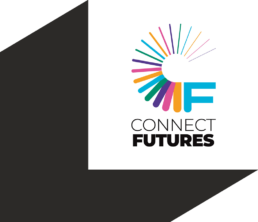
ConnectFutures CIC
Founded in 2012, by Professor Lynn Davies, Zubeda Limbada and Dr Lynn Davies, we are a national leader in youth focused solutions against disinformation, extremism, anti-racism, misogyny, hate, neurodiversity and violence. We undertake research and workshops through creative educational methods and we build resilience to equip individuals with the skills needed to thrive into adulthood. We have a national presence in the UK and international experience across multiple regions. Our ethos is that we use research to inform policy and practice.
We work with Yr 5 up to college years and create content that is current, practical and engaging. Our trainers are engaging individuals often with lived experience. To date we have worked with 245,768 young people and over 50,000 professions including educators and community members.
More details about the range of work and sticky topics we cover including bespoke content can be found on our website.
Our DEIB and Flexible Working

Our DEIB and Flexible Working
Our DEIB and Flexible Working
We are passionate about flexible working in education, as both a recruitment and a retention tool for all educators, at every level, for all identities. With the passing of the Flexible Working Bill in April 2024 it has become a hot topic for educational employers and HR teams.
Our Partner
Lucy Rose and Lindsay Patience are founders of Flexible Teacher Talent:
- Supporting schools to normalise flexible working and retain effective teachers
- Supporting effective teachers to work flexibly and improve pupil outcomes
Our Signposting
Our Case Studies
With thanks to the follow members of the #DiverseEd network who shared their flexible working journey and story with us: Adrian McLean, Debbie Rogan, Erin Skelton, Frances Akinde, George White, Harroop Sandhu, Kirsty Ruthven, Michelle Gabriel, Nick Kitchener-Bentley and Zahara Chowhdhury:
Our Events
We held a half-day virtual event in 2020 and hosted a range of stakeholders to share best practice regarding flexible working in schools, colleges and trusts:
Our Blogs
A number of our community have blogged about their experiences of working flexibly in education. Have a read here:
Our Flexible Working Toolkit and Training
Our DEIB and CQ
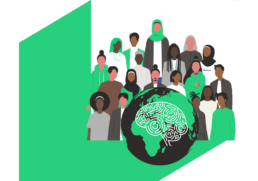
Our DEIB and CQ
Our DEIB and CQ
CQ Consultancy from Diverse Educators: Succeed in a Diverse and Global World
We provide research-based tools, training and assessments to build Cultural Intelligence (CQ) – the ability to relate and work effectively with diverse people.
For years, the case has been that more diversity equals improved organisational performance. But we can not expect diverse groups to work together effectively and improve performance if they lack the skills to do so.
Cultural intelligence (CQ) is the foundation and strategic link that ensures your DEI efforts lead to meaningful and sustainable results. The same holds true for any attempt to create an equitable and inclusive organisational culture.
Everyone has their own definition of DEI – the Cultural Intelligence Centre UK broadly defines it as any organisational effort to increase diverse representation and create inclusive, equitable environments. More specifically, we define each of the areas as follows:
- Diversity – Working to increase the representation of difference at every level of the organisation.
- Equity – Actively challenging and responding to individual and systemic biases, behaviours, policies and practices to ensure that everyone has fair access to opportunities.
- Inclusion – Fostering an environment where people with different identities experience feeling welcomed, valued and leveraged.
Using CQ to Build A DEI Organisation
Developing DEI cultures and organisations is a journey, not a destination. We never fully arrive because we are always learning and growing. And things are constantly changing. Yet it is still reasonable to expect positive and measurable results along the way. But you must first discover where you are on the journey. After your discovery, you need to develop and execute culturally intelligent strategies to move you along the journey. We can help.
Our DEI work focuses on partnering with organisations and educational institutions around the globe to integrate CQ into their DEI initiatives. More specifically, we facilitate evidence-based processes that support an organisation’s DEI Journey in ways that influence positive individual behaviour, systems change and overall organisational performance.
Our CQ Solutions for Educators
We support you in designing culturally intelligent classrooms and schools. Whether you want to assess students’ intercultural competence, improve your study abroad programme, or develop a strategy for building a culturally intelligent campus, we have a range of research-based solutions to meet your needs.
Building Culturally Intelligent Schools
Our tools and solutions are based on more than two decades of research conducted across 100+ countries. We work with educators worldwide to provide the most robust and practical cultural awareness and intercultural learning programmes.
Our CQ Strategic Cycle
When we work with you and your leadership team we help you shape your DEI approach by establishing your CQ Drive, your CQ Knowledge, your CQ Strategy and your CQ Strategy.
Our CQ Blogs
Our CQ Toolkit and Training
Meet our #DiverseEd Team of Certified CQ Consultants, Trainers and Assessors

Bennie Kara
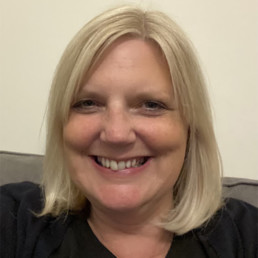
Claire Price

Ellisha Soanes

Hannah Wilson

Haroon Bashir
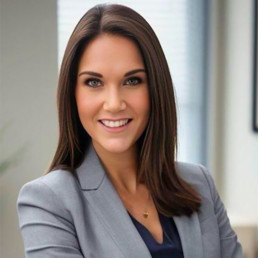
Victoria Hopkins

Zahara Chowdhury
Equality and Diversity UK Ltd
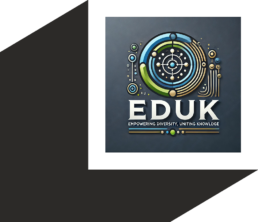
Equality and Diversity UK Ltd
From short-term tactical help to more strategic assistance, we work with your organisation to implement good equality and diversity practice. Our services include coaching, mentoring, training, consultancy, facilitation and assessment. These are often delivered in combination and are always tailored to your organisation’s specific needs.
We produce resources and publications covering all issues relating to equality and diversity and we run the Equality Network, a National Network committed to equality, diversity and social inclusion, supporting organisations and practitioners to develop awareness, understanding and skills to promote equality and tackle discrimination.
JCoB Education
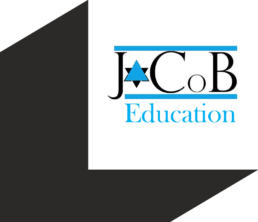
JCoB Education
We teach about Judaism in non-Jewish schools, seeking to provide basic cultural literacy that helps inoculate children against antisemitism, which like all prejudice, thrives on ignorance. Our workshops provide enrichment and support for Judaism as taught in Religious Education.
We work to improve Judaism Religious Education provision in Berkshire and throughout the UK.
Education Support
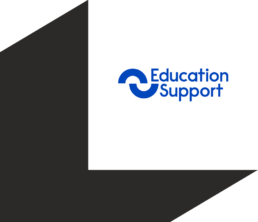
Education Support
We support individuals and help schools, colleges and universities to improve the mental health and wellbeing of their staff. We also carry out research and advocate for changes in Government policy for the benefit of the education workforce.
The Inclusive Staffroom: addressing racial inclusion to support better staff wellbeing. Find out more and sign up for support here.
Intersectionality Toolkit
Intersectionality Toolkit
Intersectionality Toolkit
Toolkit collated by Bennie Kara
Intersectionality examines how aspects of identity such as race, gender, class, and sexuality overlap to create unique experiences of privilege and oppression. The concept, coined by Kimberlé Crenshaw and rooted in the work of Black feminist scholars, is central to understanding how systems of inequality operate. The Oxford Dictionary defines it as “the interconnected nature of social categorisations such as race, class, and gender, regarded as creating overlapping and interdependent systems of discrimination or disadvantage.”
Key works such as Ain’t I a Woman? Black Women and Feminism by bell hooks and Sister Outsider by Audre Lorde emphasize the necessity of acknowledging these intersections. These texts highlight how systems like racism, sexism, and classism reinforce one another, disproportionately affecting marginalised individuals. Crenshaw’s essay in Critical Race Theory: The Key Writings That Formed the Movement explores how focusing on singular issues—like the gender pay gap—without considering dimensions like race or immigration status can inadvertently maintain inequalities within groups.
By integrating insights from books like Patricia Hill Collins’ Black Feminist Thought and Angela Davis’ Women, Race & Class, we see how addressing oppression requires a holistic approach. Tackling inequality in one area, while ignoring intersecting factors, risks perpetuating the very systems of disadvantage intersectionality aims to dismantle.
Understanding intersectionality is crucial because it reveals how social identities function on multiple, interconnected levels, shaping distinct experiences, challenges, and opportunities for individuals. Kimberlé Crenshaw’s seminal article, Demarginalizing the Intersection of Race and Sex (1989), illustrates how focusing on a single aspect of identity—such as race or gender—fails to capture the compounded impact of overlapping oppressions. Crenshaw used examples of Black women being excluded from both feminist movements and anti-racist initiatives to highlight how these systems interdependently reinforce disadvantage.
Similarly, Patricia Hill Collins’ work, Toward a New Vision: Race, Class, and Gender as Categories of Analysis and Connection (1993), argues that forms of oppression like racism, sexism, and classism are not isolated but mutually constructing. These articles emphasize that reducing oppression to a single dimension oversimplifies systemic inequality and undermines efforts to create effective change. Instead, understanding these interconnected dynamics is essential for creating policies and practices that address the full complexity of discrimination and privilege.
Ignoring intersectionality results in the oversimplification of social issues and the perpetuation of inequities, as it fails to account for the complexity of people’s experiences. Without an intersectional lens, several negative outcomes can arise:
- Exclusion of Marginalised Voices - Policies, practices, and advocacy efforts may prioritise the needs of more privileged individuals within marginalized groups, leaving those who face compounded discrimination—such as Black women, disabled LGBTQ+ individuals, or immigrant women—unsupported.
- Reinforcement of Inequities - Focusing on a single axis of identity, such as gender or race, can inadvertently reinforce other forms of oppression. For instance, addressing workplace gender inequality without considering racial disparities may primarily benefit white women while excluding women of colour.
- Ineffective Solutions - Non-intersectional approaches often fail to address the root causes of systemic issues. For example, educational policies targeting gender equity that ignore socio-economic and racial barriers may overlook the unique challenges faced by low-income students of colour.
- Marginalisation Within Advocacy Movements - Social movements that disregard intersectionality risk alienating people at the intersections of multiple identities. Feminist movements that neglect issues of race or LGBTQ+ rights, or anti-racist movements that ignore gender dynamics, can fracture solidarity and limit progress.
- Perpetuation of Stereotypes - Ignoring intersectionality can reinforce harmful stereotypes by treating groups as homogenous. This approach often fails to acknowledge the diversity within marginalised communities, perpetuating one-size-fits-all narratives.
By applying an intersectional perspective, educators can identify and challenge practices that perpetuate inequities. This approach enables the creation of more inclusive environments that acknowledge and support the diverse needs of all students, ultimately fostering equity and belonging in the classroom.
To show up in a more intersectional way, it’s essential to approach allyship with intentionality, reflection, and a commitment to continuous growth. Here are some actionable steps to integrate intersectionality into your daily actions:
- Reflect on Privilege - Take time to critically examine the privileges you hold and the ways they shape your perspective. Privilege isn’t just about what advantages you have but also about the challenges you don’t face. Resources like McIntosh’s Unpacking the Invisible Knapsack can help you identify how privilege operates in your life. This self-awareness is the first step toward understanding how to use your privilege to advocate for others without overshadowing them.
- Listen, Learn, and Collaborate - Commit to listening to diverse voices, particularly from those directly impacted by systems of oppression. Engage with books, podcasts, and articles from activists and scholars of varying identities. Ensure your collaborations and partnerships meaningfully include individuals from underrepresented groups, valuing their expertise and lived experiences. For instance, Crenshaw’s work emphasizes how centring these voices can dismantle harmful narratives.
- Make Space, Not Just Take Space - Regularly assess whether you are the right person to speak or act in certain situations. Advocate for those with lived experiences to lead discussions and decision-making processes. When possible, amplify marginalised voices by sharing platforms, redirecting attention to their work, and ensuring they are at the forefront of movements.
- Be Mindful of Language - Language shapes perceptions and can either include or marginalise others. Stay conscious of the terms you use, actively unlearning phrases or words rooted in harmful stereotypes. Be open to receiving feedback when your language causes harm, and correct your mistakes with humility. Similarly, challenge discriminatory language in others, creating a culture of accountability.
By actively engaging in these practices, you can create meaningful change in how you show up, ensuring your actions contribute to equity and inclusion across all intersections of identity.
The Diverse Educators’ Intersectionality Toolkit
- Why is it important to understand intersectionality?
- Who does intersectionality impact?
- How has intersectionality changed over time?
- What does intersectionality mean for us as educators?
- How can we apply an intersectional approach?
Articles
Blogs
Books
Podcasts
Resources
TED Talks
Videos
Our Support Staff Training
Our Support Staff Training
Our Support Staff Training
Our Training Offer
We support operational and support staff in schools, colleges and trusts to develop their consciousness, confidence and competence in Diversity, Equity, Inclusion and Belonging.
We can deliver face to face and virtually, for pastoral meetings, twilights and conferences.
We can create a safe space to help support staff members to explore their own identities to become more aware of their own unconscious biases and how to navigate them.
- Developing an understanding of key DEIB concepts and language
- Reflecting on our own identities and lived experience
- Exploring our individual and collective power, privilege and blind spots
- Communicating our DEIB commitment through our vision, mission and values
- Developing inclusive behaviours and modelling inclusive language
- Holding courageous conversations to hold one another to account
- Understanding how we can all contribute to an organisational commitment to DEIB, no matter what our role and remit is.
Diverse Educators delivered the session with such care, ensuring they took everyone with them on the journey through the training materials. Hannah and Adrian were sensitive, highly informed, reflective and responsive, working with the room to maximise the impact of the training.
Clarissa Ford, EDI Coordinator & Head of English
This training was something we will remember for a long time. Some staff even shared it was the best CPD they had been part of. We feel it was hugely purposeful and will have a great impact on our school short term and long term. Would definitely recommend!
Katy Nicholls, Deputy Headteacher
Our Thriving in Life-Friendly Schools Training
Our Thriving in Life-Friendly Schools Training
Our Thriving in Life-Friendly Schools Training
Our Training Offer
We support all stakeholders in becoming more conscious of the impact that a life-friendly school culture can have on employees.
Building confidence in how to do things differently in how we recruit, retain and develop our staff will enable us to review our talent management strategy.
Developing competence in reviewing policies through a life-friendly lens and in approaching contracts and timetabling differently empowers us to do things differently to create a more flexible workforce.
We will explore your workplace culture and get you to consider how life-friendly approaches will support your recruitment and retention strategies.
We can deliver face to face and virtually, for twilights, INSETs and conferences.
Our Training Session Includes
- Outlining the current recruitment and retention landscape
- Exploring the reasons why are we losing so many mid-career teachers
- Reviewing the research and gaining insight from research findings into who is leaving the profession
- Discussing what “life friendly” mean, and how “life friendly” schools attract and retain teachers and leaders
- Reflecting on interactive case studies, using life friendly leadership strategies to explore new approaches to teacher wellbeing and retention
- Discussing what needs to be done to improve communication between schools and teachers to address the retention crisis
- Reflecting on how a positive school culture that supports teachers as they become parents does not just benefit mothers and fathers
- Engaging with the practical strategies to improve balance for all staff, that will help colleagues, whatever their role or level of responsibility, to create “life friendly” schools
The #DiverseEd training was excellent – it challenged us to think about ourselves and our school critically through the lens of ‘being curious’ which was so helpful. It encourages critical reflection in a low-threat way.
Claire Tasker, Headteacher
The series of webinars have been invaluable. They have made us as a school develop our thinking, become more conscious of additional barriers and most importantly developed confidence and competence in staff.
Francesca Porta-Rios, Inclusion Assistant Headteacher
Diverse Educators came highly recommended and they certainly did not disappoint on the Inset day, engaging all staff in a meaningful and informative way. As former teachers who occupied senior positions, they were able to speak with real authority, humanity and clarity.
Caroline Bond, Assistant Headteacher
The training session from Diverse Educators delivered everything that it promised to do. Not only did we gain the valuable insight of a well-informed and engaging speaker, we also took away a lot of new ideas for our school to develop upon. The CPD has provided the perfect springboard to further conversations and actions to improve the inclusivity of our school environment.
Tom Guest, Head of History and DEI Lead
Our Curating Diverse Events Training
Our Curating Diverse Events Training
Our Curating Diverse Events Training
Our Training Offer
We support training hosts, event organisers, CPD leads and TSH directors in developing their consciousness, confidence and competence in considering how inclusive and accessible their events are.
We will review the things we can do to the organisation of the event and the physical space to enhance levels of inclusion. We will consider how we organise resources and use our communication methods to create belonging.
We can deliver face to face and virtually, for twilights, INSETs and conferences.
Our Training Session Includes
- Articulating our commitment to DEIB as event organisers
- Designing events, big and small, with inclusion in mind
- Curating diverse and representative speaker line-ups
- Identifying and removing barriers to inclusion at events
- Considering accessibility needs to enhance the experience of all participants
- Holding others to account for meeting the needs of diverse participants
The training was engaging, clear and delivered with openness and honesty. It promoted great discussion between different groups of staff.
Sharon Khan, Assistant Headteacher
The training was inspiring, and the sincerity and commitment of the presenters shone through.
Nicky Winder, Teacher of English (part time)

